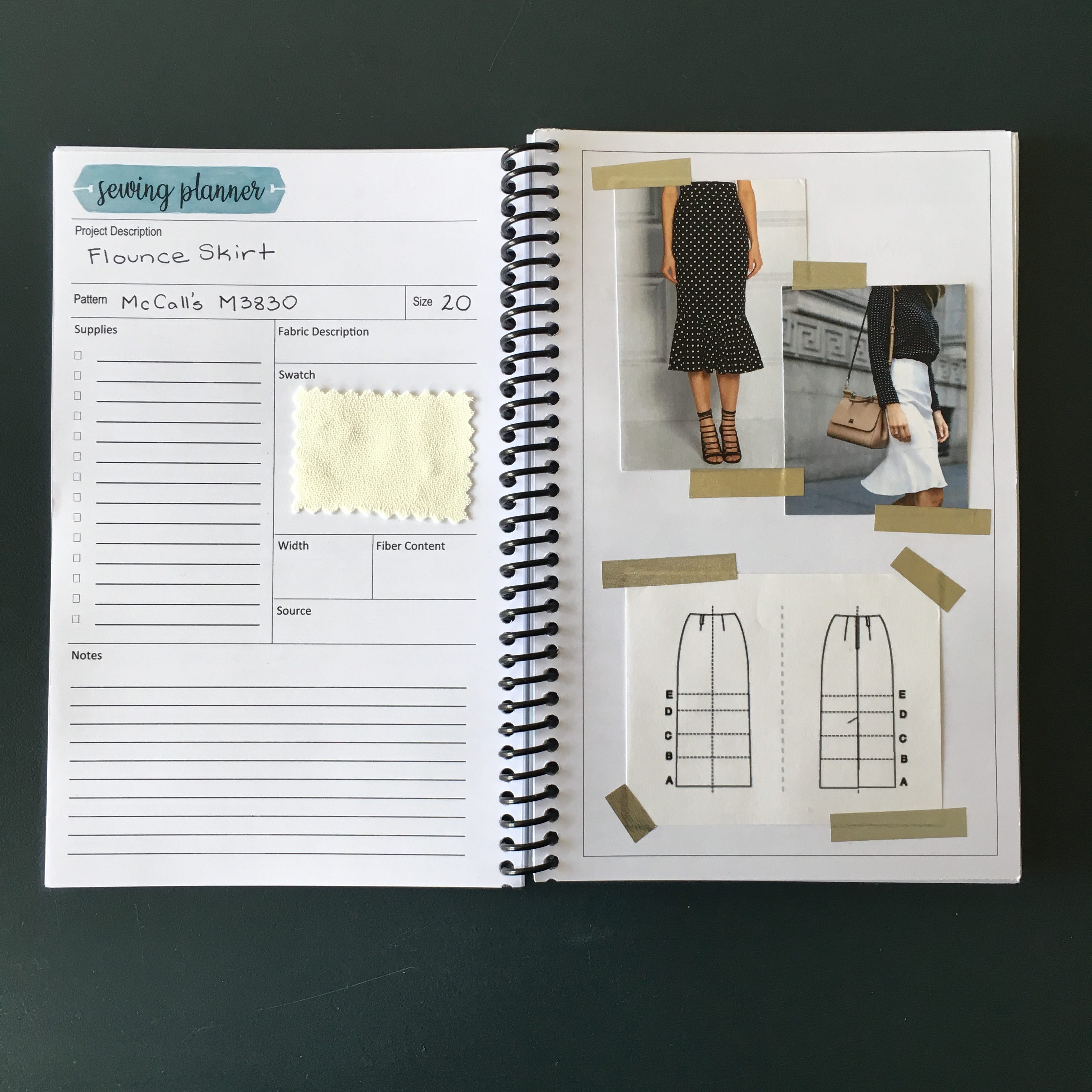We recently had a question about how we keep track of things around here with regards to projects and notes and thought we would write a little about sewing planners and notebooks.
When we first started out, we were using some elastic-bound notebooks and folders that Tchad got from the local department store in Lugano when he was in school:
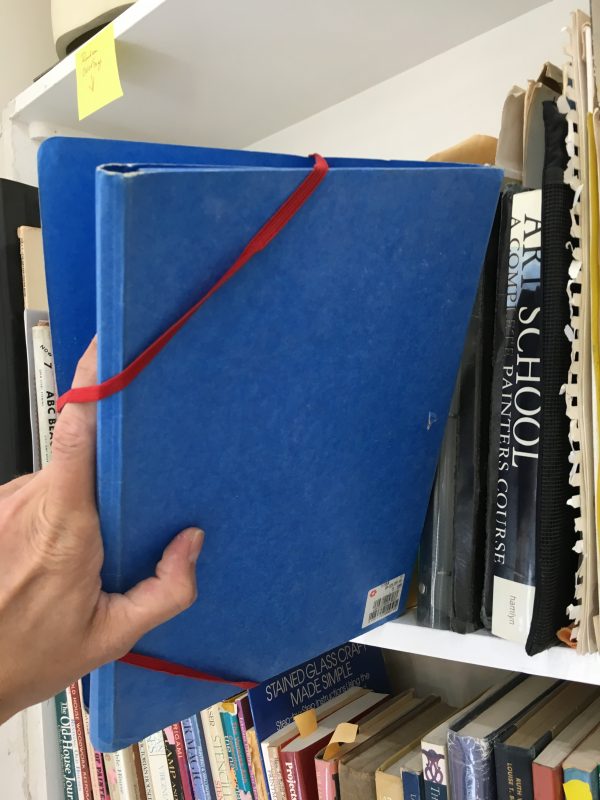
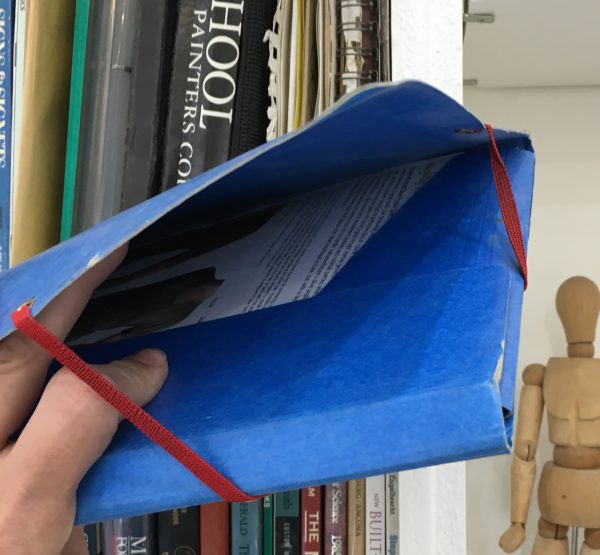
These were the perfect size and shape to hold multiple media – you could jam sketches, notes, photographs, and just about everything else so it stayed tight and archived.
As the years wore on, we experimented with tons of other configurations, including this handmade Ganesh leather bound notebook:
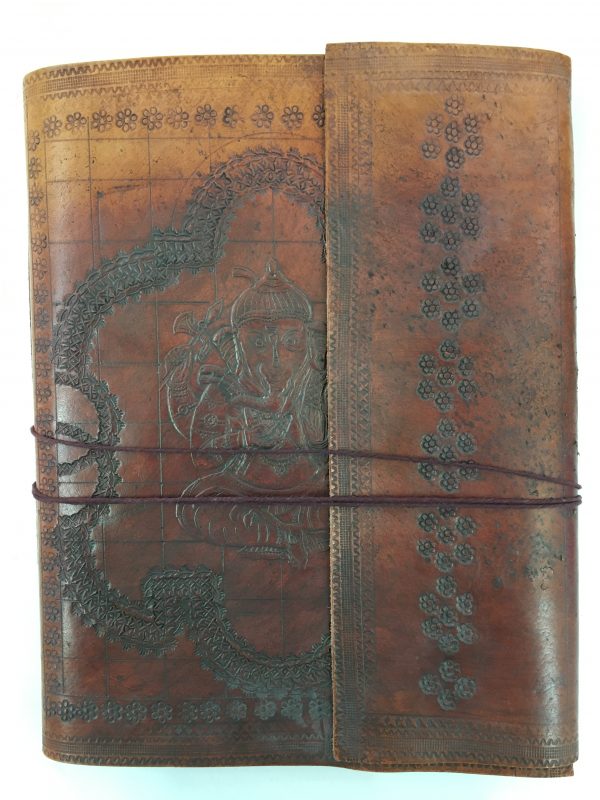
As well as any number of handmade, hand bound, or store bought notebooks:
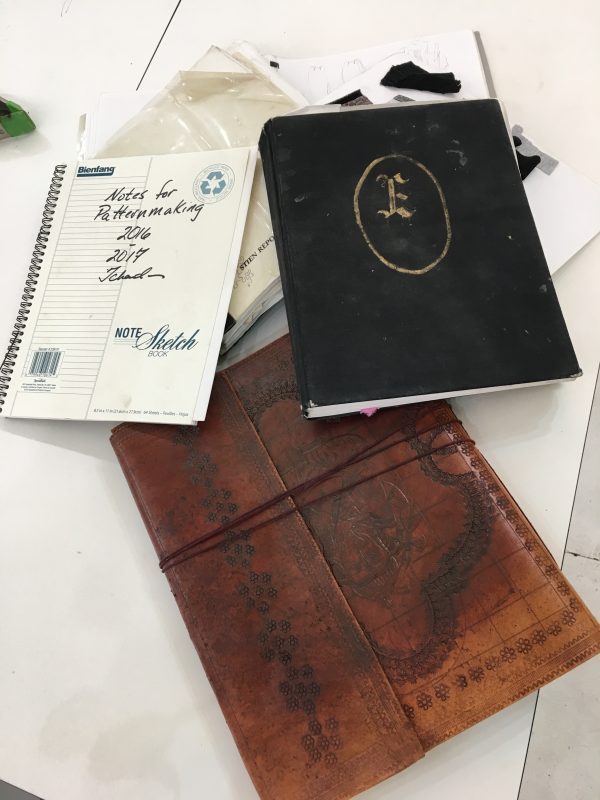
We used to like binding our own books to use for design and pattern making notes, but the past few years, with so much going on we just haven’t had time. We’ve settled into using a Bienfang Note/Sketch Book that we order from Amazon once every couple of months. At 8.5 x 5 inches or so, it ends up being portable and easy to jot or sketch in even though they fill up fast.
Since most of our work at the workroom is custom, we keep separate notebooks for sketches and notes about the patterns those sketches generate. So our pattern notes look like this as we work out the shapes:
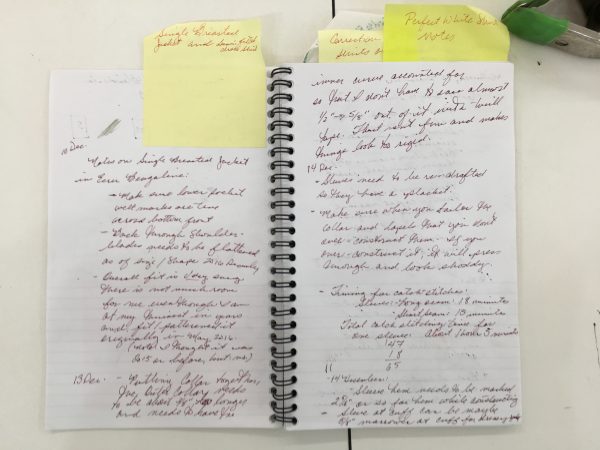
We were THRILLED when a student came in with her own version of a sewing planner. This is taking “respecting your craft” to a new level for a beginner/intermediate student:
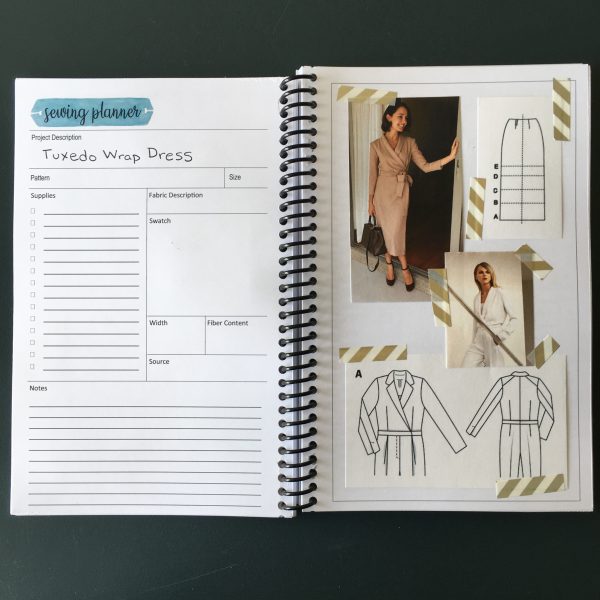
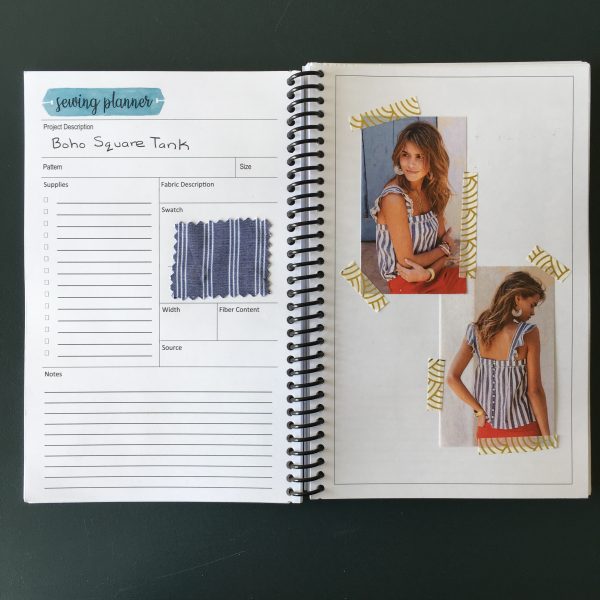
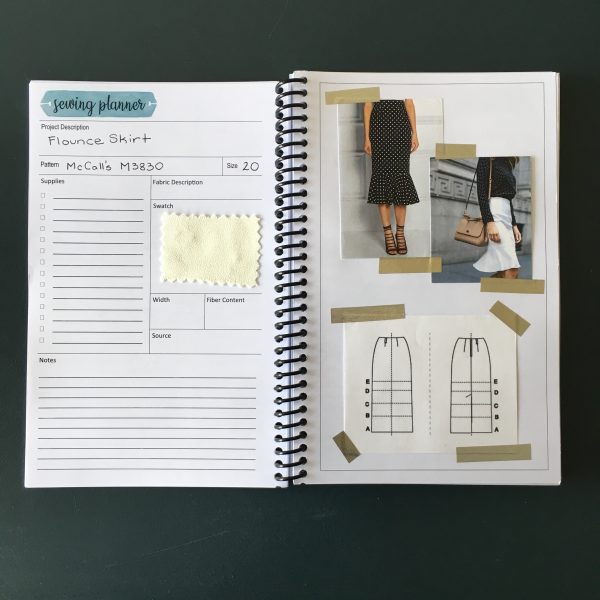
Olena made and had this bound herself for her own use, but it is VERY similar to the Colette sewing planner.
So all of this is to say that there are any number of things to think about when you are documenting projects and planning things out. You may feel like the finesse and professionalism of a spiral bound planner is right up your alley or you may like to do things electronically. However you end up planning and taking notes is OK. You will end up being a better sewer in the long run and how you think about your projects will start to take on something so much more than it otherwise would have.
Here is a short list of what’s available. It isn’t exhaustive; it just hits the tip of the iceberg, but it gets you started thinking.
Electronic: You really can’t beat Evernote. It has infinite capabilities for clips, pictures, and video. It takes a second to get used to, but well worth it. It is the app we use on the tablet when dealing directly with clients.
Retail: The Colette Sewing Planner has been popular online, lately. It gives you the ability to take notes and document things in a really smooth way. We’d like to think this is what a sorority girl in 1955 would carry – it has that ladylike aesthetic to it.
If you wanted to look around some more, Pinterest is a great resource. We found multiple sewing planner templates.
If you have a specific question about one planner over the other, we see a lot come through here, so just let us know and we’ll tell you what we thought if we saw them.
